Compare the two most popular types of kitchen sinks and decide which is preferable for you
Which Sink Material Is Better: Stainless Steel or Granite Composite?
Selecting the appropriate material is paramount when it comes to substituting your kitchen sink. As it is the place where you will devote most of your time washing dishes, cleaning veggies, and accomplishing other kitchen tasks, making the right choice is essential. Would a stainless steel sink or a granite composite sink be more appropriate for your needs? In this article, we will thoroughly analyze the distinctions between these two widely used materials. We will cover everything from construction and design to durability and cost, providing you with all the information you require to make a well-informed decision for your kitchen sink replacement.
Material Makeup
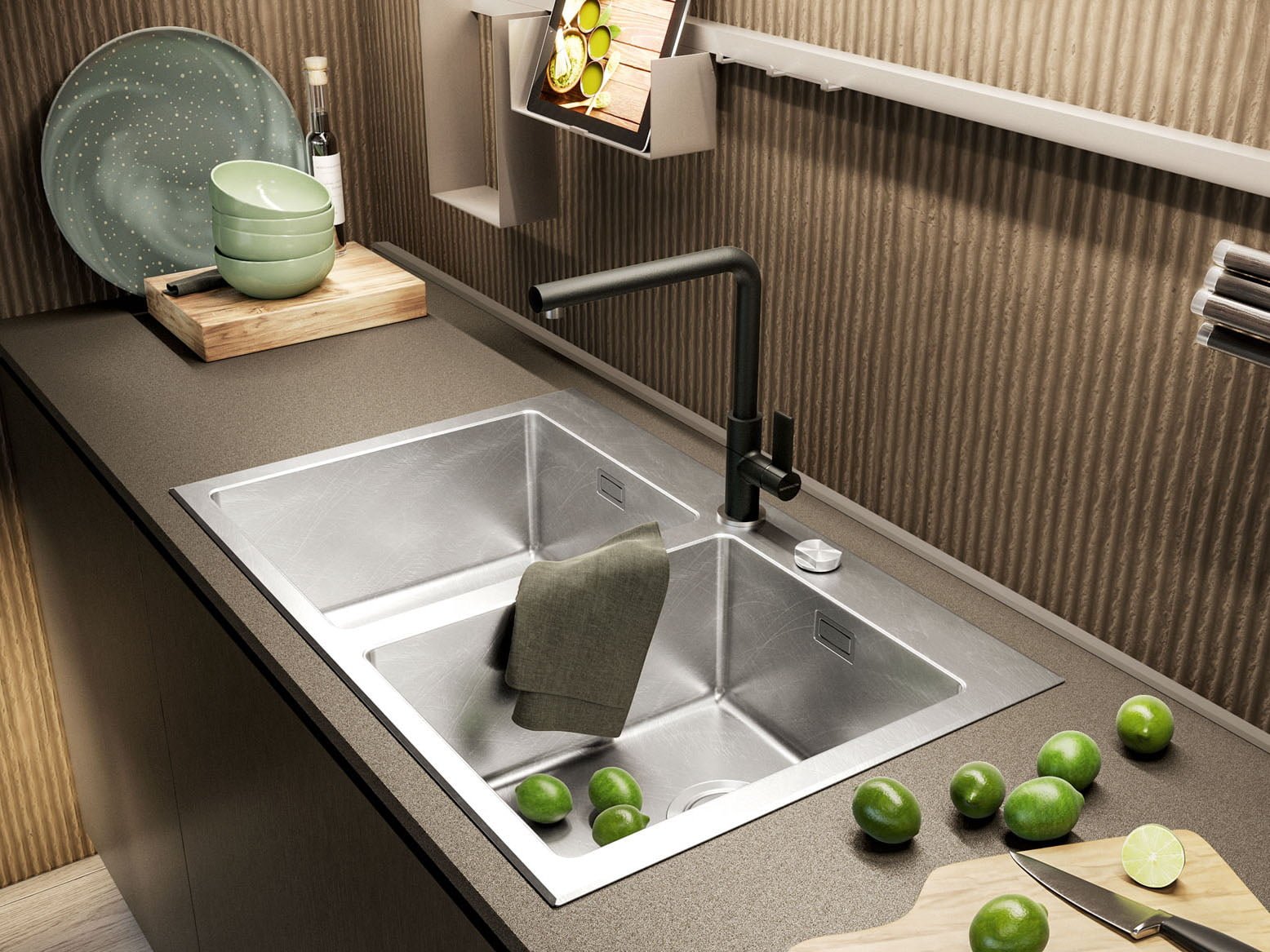
The first and most obvious step we should take in starting this comparison is to examine the compound and properties of the materials themselves. Composite granite sinks are made from a mix of resin and stone, which results in a highly non-porous and almost hydrophobic material. This means that water sheds off the surface of composite granite sinks, making them more hygienic than traditional granite sinks with their potential for bacteria hiding in nooks and crannies. Composite granite sinks also have a uniform color throughout the material, unlike authentic granite stone sinks with their natural variations.
On the other hand, stainless steel sinks are made from an alloy of 18/8 steel, containing both chromium and nickel. The higher the amount of these metals, the better quality of the steel. The gauge thickness is also an important factor for stainless steel sinks, with a lower gauge (thicker) being more durable and sound-absorbing, but also more expensive. An 18-gauge steel sink is ideal for most homes, while luxury and commercial kitchens may opt for a 16-gauge sink.
It's worth noting that granite composite sinks are harder than stainless steel sinks due to the presence of quartz sand in the material. While this makes them more durable, it also means that you should exercise caution when placing delicate items like wine glasses in the sink to avoid breakage.
On the other hand, granite composite sinks are non-porous and much more hygienic than granite, but they can still be susceptible to stains. Lighter colors of composite sinks are more prone to staining due to the type of resin used in their construction, which can absorb acidic or staining materials and hold onto them. To remove such stains, you would need to replace or refinish the entire sink.
In conclusion, even though granite composite sinks and stainless steel sinks both have benefits and drawbacks, it's crucial to preserve your sink's impeccable appearance. You can aid in preventing stains and keep your kitchen sink looking brand-new for many years by thoroughly rinsing it after each use and cleaning it frequently.
On the other hand, stainless steel sinks are made from an alloy of 18/8 steel, containing both chromium and nickel. The higher the amount of these metals, the better quality of the steel. The gauge thickness is also an important factor for stainless steel sinks, with a lower gauge (thicker) being more durable and sound-absorbing, but also more expensive. An 18-gauge steel sink is ideal for most homes, while luxury and commercial kitchens may opt for a 16-gauge sink.
It's worth noting that granite composite sinks are harder than stainless steel sinks due to the presence of quartz sand in the material. While this makes them more durable, it also means that you should exercise caution when placing delicate items like wine glasses in the sink to avoid breakage.
Stain-fighting abilities
When it comes to keeping your kitchen sink looking clean and free from stains, both stainless steel and composite granite have their strengths and weaknesses. Stainless steel sinks are known for their stain resistance, but they can still become discolored by rust or mineral deposits from water. Thankfully, these stains are easily removed with a simple cleaning solution like vinegar.On the other hand, granite composite sinks are non-porous and much more hygienic than granite, but they can still be susceptible to stains. Lighter colors of composite sinks are more prone to staining due to the type of resin used in their construction, which can absorb acidic or staining materials and hold onto them. To remove such stains, you would need to replace or refinish the entire sink.
In conclusion, even though granite composite sinks and stainless steel sinks both have benefits and drawbacks, it's crucial to preserve your sink's impeccable appearance. You can aid in preventing stains and keep your kitchen sink looking brand-new for many years by thoroughly rinsing it after each use and cleaning it frequently.
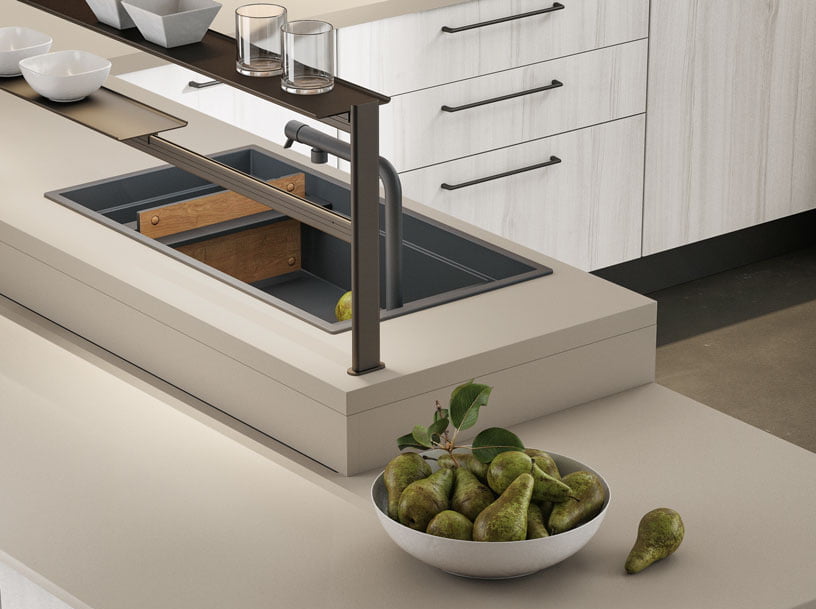
Color Choices
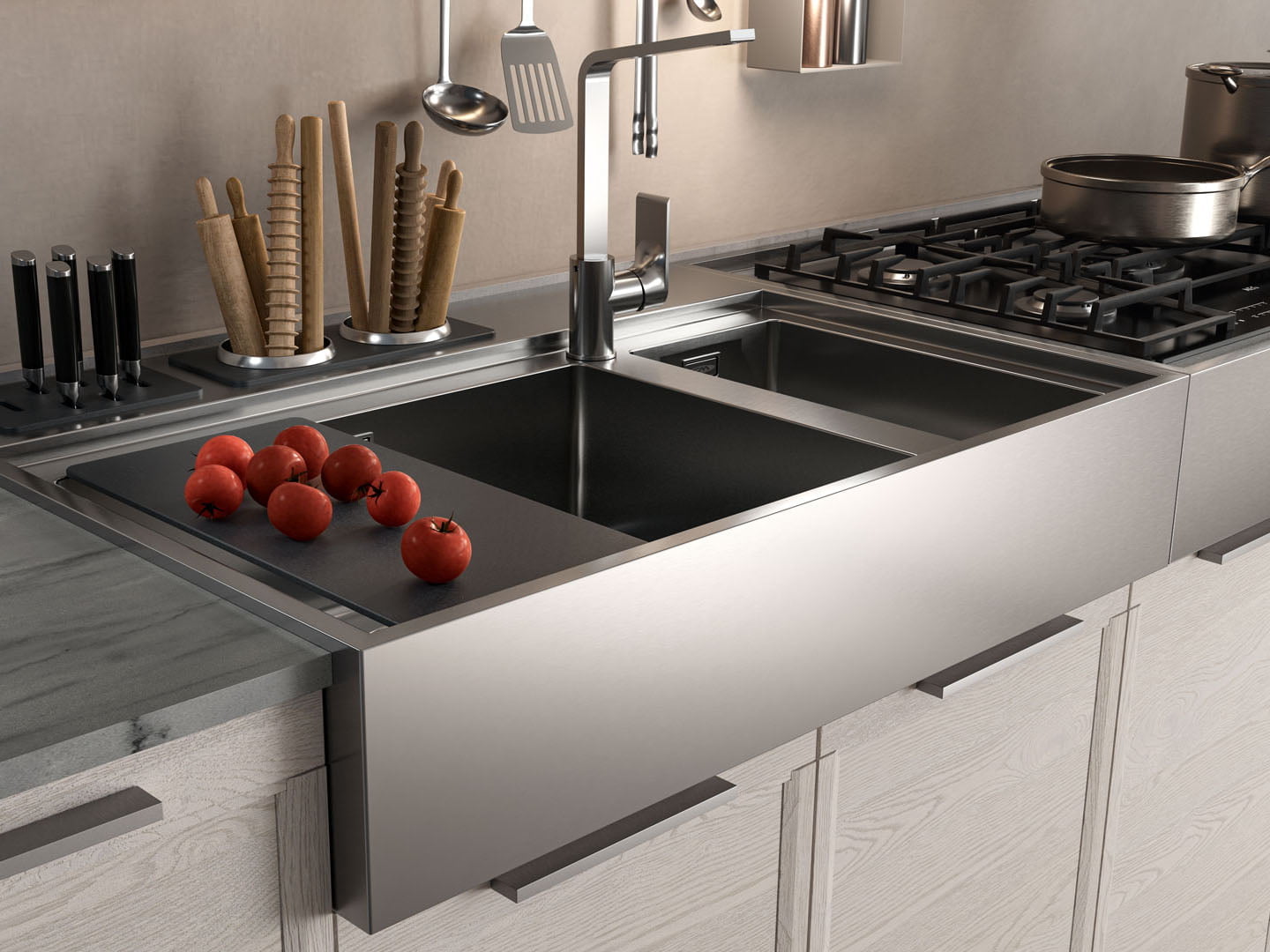
Color plays a significant role if you want to acquire a kitchen sink that complements your kitchen's design and theme. While stainless steel sinks are known for their durability and stain resistance, they come in only one color - steel gray or silver. This may not be the ideal choice if you want a specific color to match your kitchen's color scheme.
Meanwhile, granite composite sinks offer far more color options, ranging from beige to brown to gray to white. This is because they are made of ground stone, resins, and pigment, allowing for a wider range of color customization. Nowadays, black, gray, white, or beige are the most popular hues for granite composite sinks. It's worth noting that they don't have the veining of natural stone like a granite countertop.
It all comes down to personal style and the aesthetic you're going for in your kitchen when deciding between a stainless steel sink and a granite composite sink. If color variety is a top priority for you, then a granite composite sink may be the better option.
However, this is not the case for granite composite sinks, which are significantly heavier and bulkier. Installing a granite composite sink requires more effort and may necessitate the help of another person. Additionally, you'll want to reinforce the area around your sink, including the countertops and cabinets, to prevent any damage or stress caused by the weight of the sink.
On the other hand, stainless steel sinks won't crack or chip, but they are more prone to scratches. Sharp knives, heavy cookware, and utensils can scratch the steel, causing it to lose its initial luster over time. To prevent major scratches, installing a grate at the bottom of your stainless steel sink is recommended.
Thus, stainless steel and composite granite kitchen sinks offer different types of durability, and the choice between them depends on your personal preference.
Meanwhile, granite composite sinks offer far more color options, ranging from beige to brown to gray to white. This is because they are made of ground stone, resins, and pigment, allowing for a wider range of color customization. Nowadays, black, gray, white, or beige are the most popular hues for granite composite sinks. It's worth noting that they don't have the veining of natural stone like a granite countertop.
It all comes down to personal style and the aesthetic you're going for in your kitchen when deciding between a stainless steel sink and a granite composite sink. If color variety is a top priority for you, then a granite composite sink may be the better option.
Sink weight
One important consideration when choosing a kitchen sink is its weight and ease of installation. Stainless steel sinks are favored for their lightweight design, which makes them easy to handle and install with "just one hand". This feature could potentially save you money on installation costs if you hire a contractor to do this.However, this is not the case for granite composite sinks, which are significantly heavier and bulkier. Installing a granite composite sink requires more effort and may necessitate the help of another person. Additionally, you'll want to reinforce the area around your sink, including the countertops and cabinets, to prevent any damage or stress caused by the weight of the sink.
Durability evaluation
Granite composite sinks are known for their outstanding durability. They offer the hardness, strength, and rigidity of traditional granite, combined with the forgiveness and slight malleability of composite materials. However, while the risk of chipping and cracking decreases significantly when using composite granite, it is still not completely eliminated. Heavy items like pots or pans can still cause damage.On the other hand, stainless steel sinks won't crack or chip, but they are more prone to scratches. Sharp knives, heavy cookware, and utensils can scratch the steel, causing it to lose its initial luster over time. To prevent major scratches, installing a grate at the bottom of your stainless steel sink is recommended.
Thus, stainless steel and composite granite kitchen sinks offer different types of durability, and the choice between them depends on your personal preference.
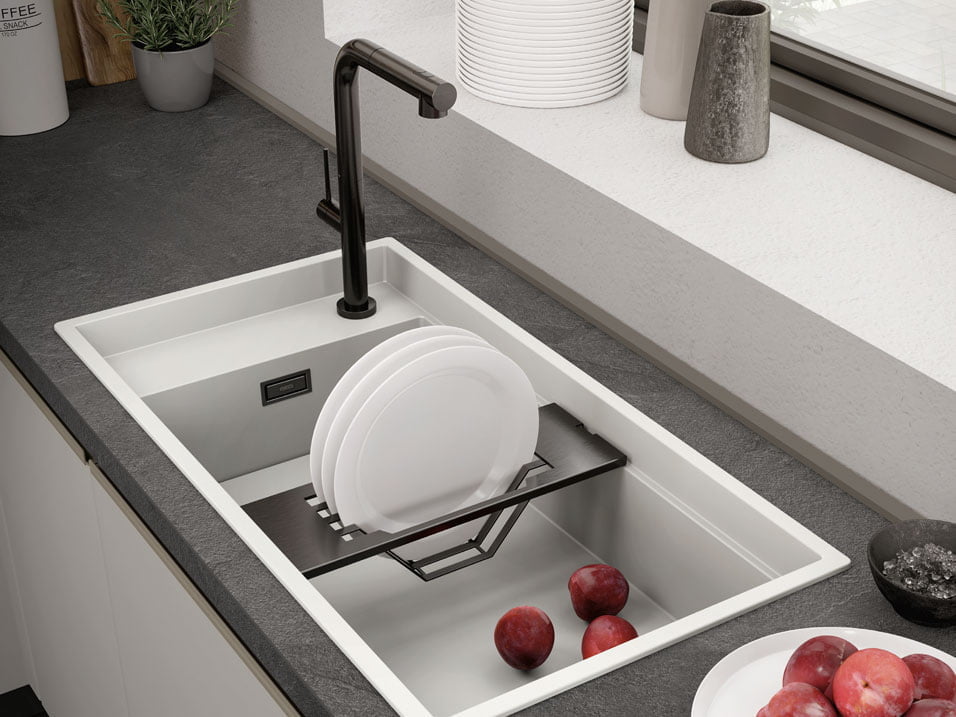
Options for Configuring
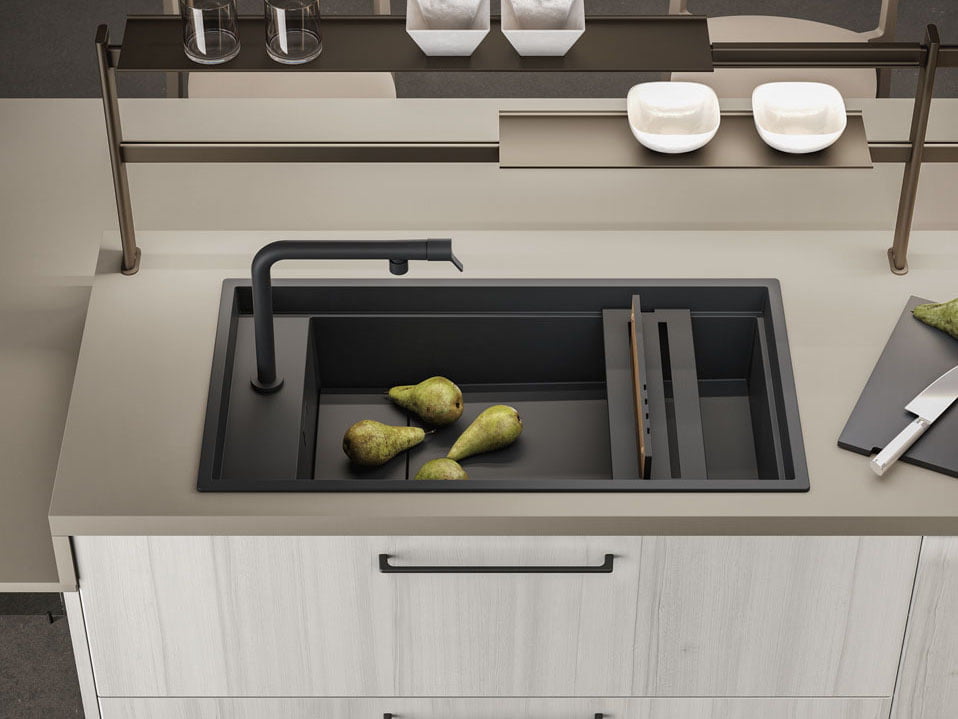
Stainless steel sinks offer more versatility compared to granite composite sinks. Due to their higher popularity, stainless steel sinks come in a wider variety of configurations, including unique custom options like triple-basin sinks, for example. Conversely, most granite composite sinks only come in standard single or side-by-side configurations, which can limit choices for those with specific requirements.
In recent years, manufacturers have addressed the noise issue by adding rubber pads to the bottom of stainless steel sinks. While the pads do help, they don't eliminate all noise. Alternatively, you can apply rubberized undercoating spray to the underside of the sink to dampen the noise.
In contrast, granite composite sinks are much quieter. They make very little noise when you place dishes in them or even when you accidentally bang a pan against the sink's wall.
By contrast, cleaning a composite granite sink requires a bit more care. Harsh chemicals can damage the surface, and it is important to follow the manufacturer's recommendations for cleaning and avoiding certain products. Mild dish soap and warm water are usually sufficient for everyday cleaning, but tougher stains may require baking soda and vinegar. Composite granite sinks also require special maintenance at least once during the period of exploitation, and a protective coating should be applied regularly to keep the sink looking like new.
Analyzing noise reduction
Do you worry about the sink noisiness level? Then remember, stainless steel sinks can be quite loud. You can expect to hear some clanging and banging when washing pots and pans. Thinner stainless steel sinks tend to be louder, so if noise is a concern, it's best to choose at least an 18-gauge sink.In recent years, manufacturers have addressed the noise issue by adding rubber pads to the bottom of stainless steel sinks. While the pads do help, they don't eliminate all noise. Alternatively, you can apply rubberized undercoating spray to the underside of the sink to dampen the noise.
In contrast, granite composite sinks are much quieter. They make very little noise when you place dishes in them or even when you accidentally bang a pan against the sink's wall.
Heat management
Stainless steel sinks are fire and heat-resistant, which means you don't have to worry about thermal shock. However, they don't retain heat very well, which can be a disadvantage when you want to keep water warm for hand-washing dishes. What about composite granite sinks, they are heat resistant up to 500°F and hold heat slightly better than stainless steel. Still, it's important to note that some composite granite sinks may warp from extreme heat, so it's essential to read the specifications for the brand you are considering.About maintenance
Stainless steel sinks are known for their durability and resilience. They are resistant to stains and rust, and minor scratches can often heal on their own due to the composition of the material. However, metal scrub pads should be avoided to prevent scratches and potential rust.By contrast, cleaning a composite granite sink requires a bit more care. Harsh chemicals can damage the surface, and it is important to follow the manufacturer's recommendations for cleaning and avoiding certain products. Mild dish soap and warm water are usually sufficient for everyday cleaning, but tougher stains may require baking soda and vinegar. Composite granite sinks also require special maintenance at least once during the period of exploitation, and a protective coating should be applied regularly to keep the sink looking like new.
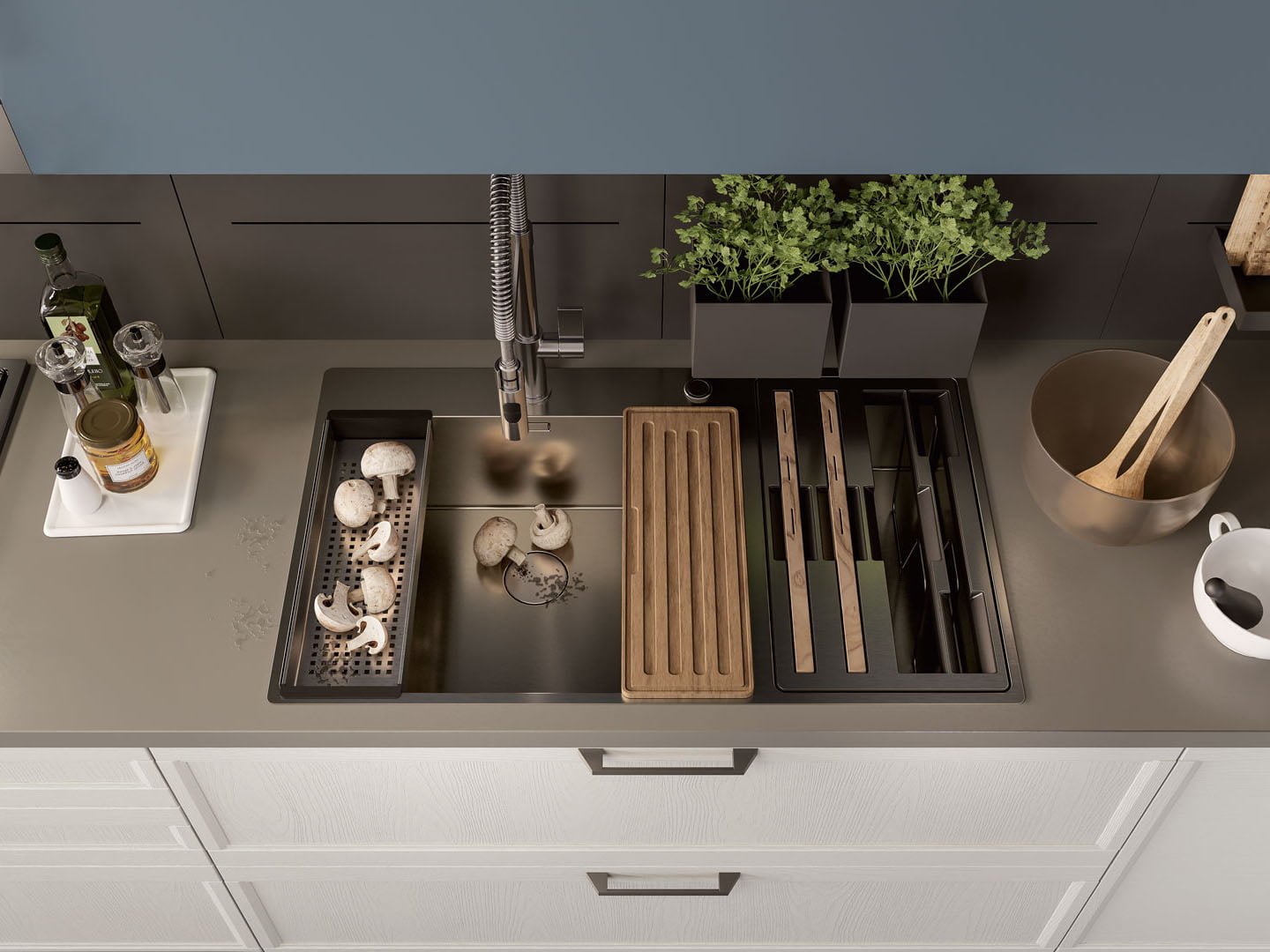
Comparing the Costs and Access
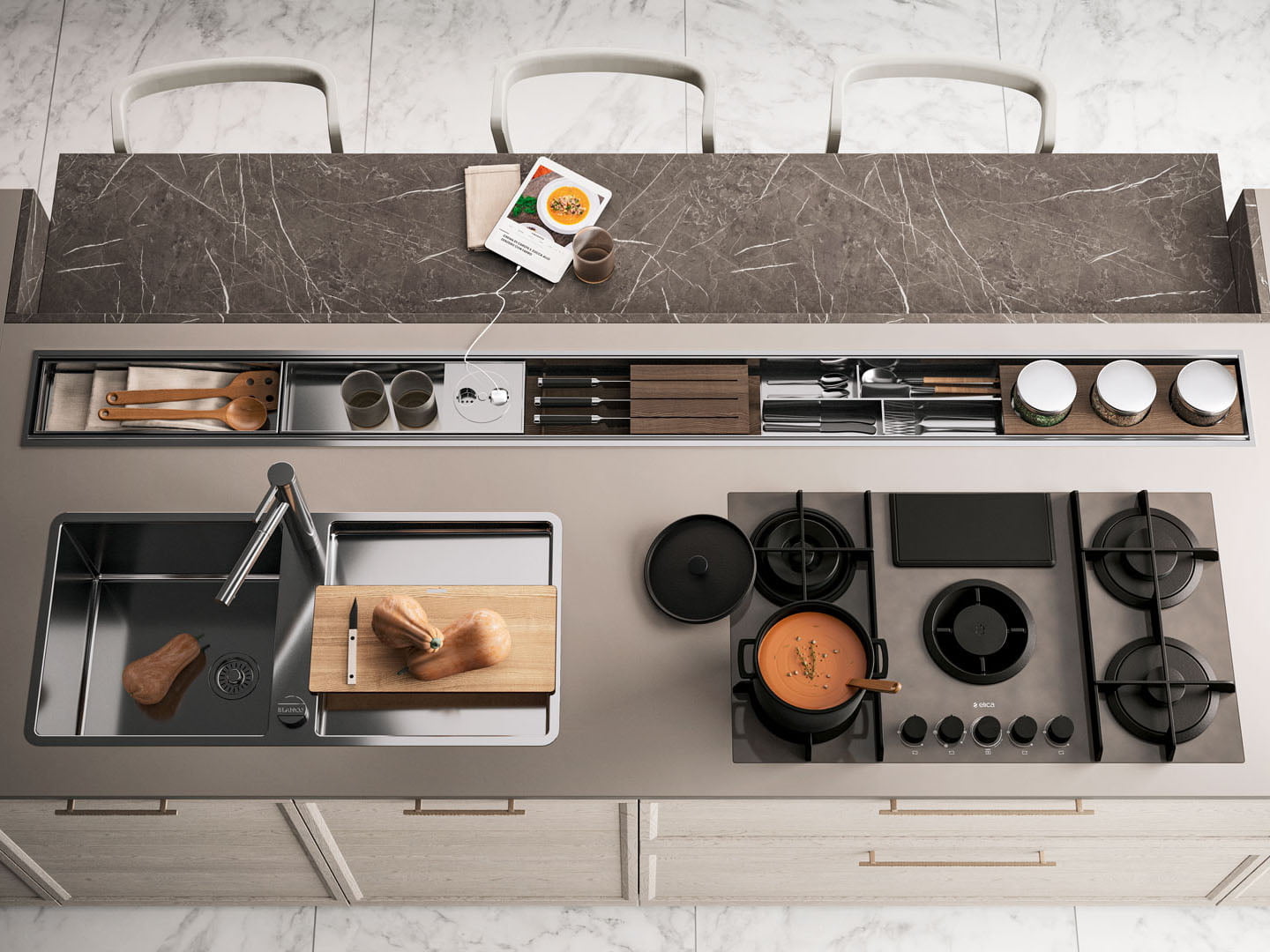
Cost and availability are always important factors to consider. While traditional granite sinks can be very expensive, composite granite sinks offer a cost-effective alternative. They provide the same look as traditional granite but at a much lower price point. On average, double-bowl composite kitchen sinks range from $200 to $500. However, the price can vary based on the ratio of quartz powder and mineral granite in the sink.
In contrast, stainless steel sinks remain the most affordable option on the market. They can cost less than $100 for a double-bowl sink and offer many of the same benefits as granite and composite granite sinks. However, higher-end stainless steel sinks can cost up to several hundred dollars.
Furthermore, stainless steel sinks are more readily available than composite granite sinks. There are several stainless steel sinks readily available in shops and online, and they come in a range of thicknesses to fit practically any budget. While composite granite sinks are also available at major hardware stores, the options may be more limited, so it's important to research online before heading to the store.
In contrast, stainless steel sinks remain the most affordable option on the market. They can cost less than $100 for a double-bowl sink and offer many of the same benefits as granite and composite granite sinks. However, higher-end stainless steel sinks can cost up to several hundred dollars.
Furthermore, stainless steel sinks are more readily available than composite granite sinks. There are several stainless steel sinks readily available in shops and online, and they come in a range of thicknesses to fit practically any budget. While composite granite sinks are also available at major hardware stores, the options may be more limited, so it's important to research online before heading to the store.
The final verdict
In conclusion, it's necessary to say everything depends on your personal preference and specific needs, there is no easy solution or definitely the best material. Stainless steel sinks are durable, affordable, and come in various configurations, making them a classic and versatile option. On the other hand, granite composite sinks offer an upscale look, are less noisy and scratch-resistant, but can be more expensive and less durable than stainless steel. Ultimately, you just make sure what type of sink fits better with your kitchen decor and provides the functionality and maintenance that you expect to get from it.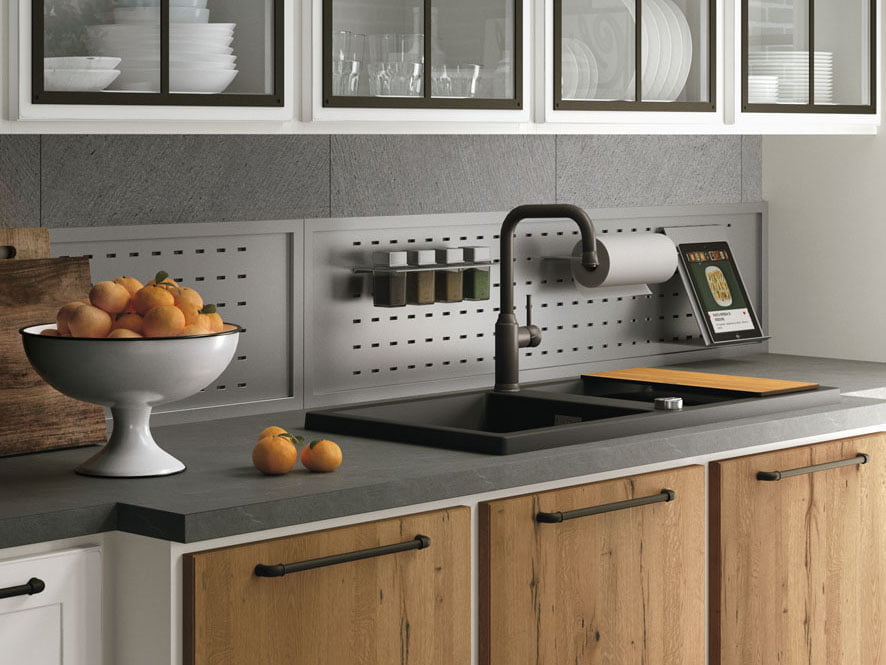
- July 7, 2023









